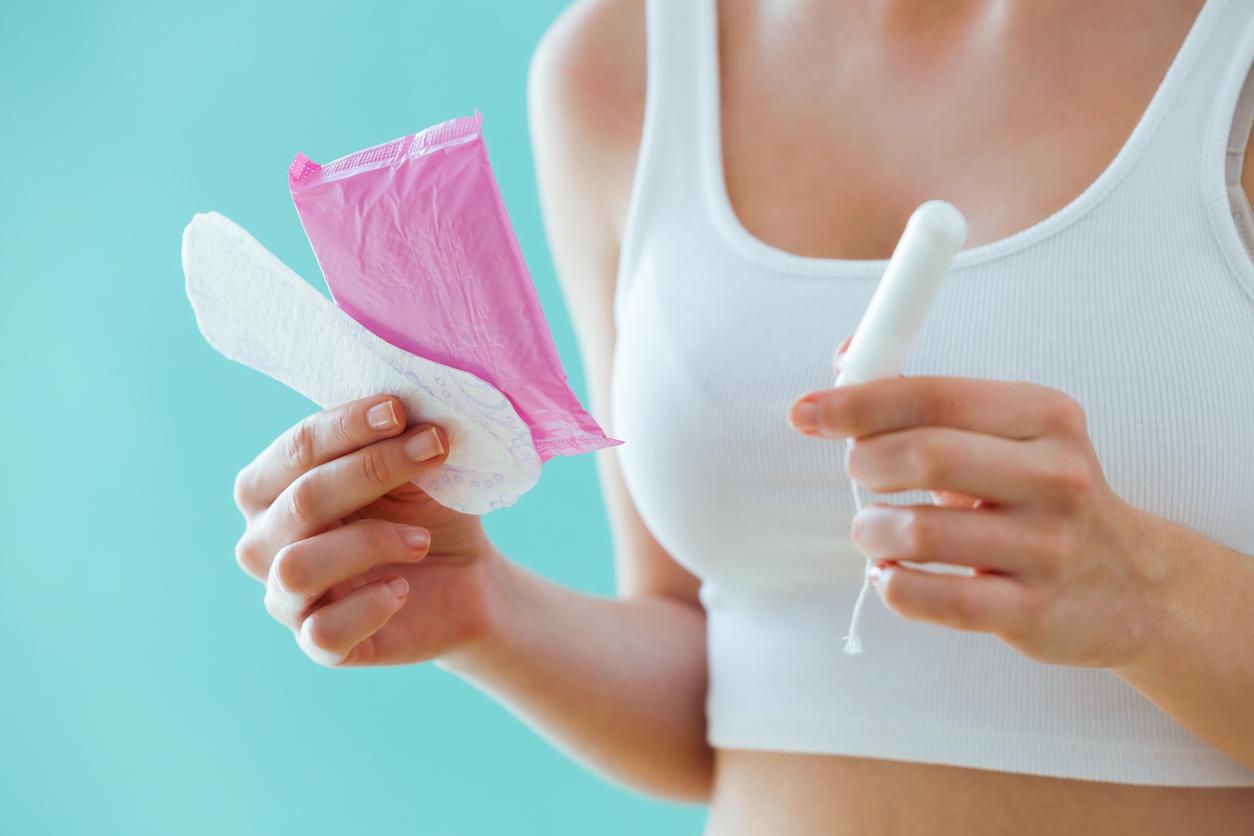Taking a few precautions makes it safe to sleep with a tampon during your period.

- The tampon is clearly losing ground among French women since less than one in five (19%) say they use it during their period, according to an Ifop study from 2021.
- Menstrual panties are gaining increasing interest among women concerned about their comfort and the ecological impact of their period products, according to 60 million Consumers.
During menstruation, sleeping peacefully is not easy: cramps, pain and discomfort, added to the fear of soiling the sheets, can indeed hinder quality sleep. Sleeping with a tampon can be a solution to keep the flow under control and sleep better, provided you follow certain guidelines, according to obstetrician Stacie Jhaveri.
Changing tampons regularly prevents bad bacteria from multiplying
Thus, it is important to put the tampon on just before going to bed and not to wear it for more than eight hours. Indeed, leaving a tampon in place too long can lead to toxic shock syndrome (TSS), a very rare but potentially fatal bacterial infection caused by the bacteria staphylococci, streptococci or Clostridium sordelli.
When using a tampon or menstrual cup, the blood pools in the vagina. This creates a very favorable environment for the multiplication of these bacteria. However, they secrete a toxin which, spreading through the body via the bloodstream, can attack our organs: liver, kidneys, lungs, etc.
“At first, this manifests as a high fever, flu-like or gastro-like symptoms, or even rashes. But in the most extreme cases, the toxic shock can lead to organ failure. , a coma, or even death”, according to the‘Inserm.
So if you know you’re going to sleep more than eight hours, it’s best to use a sanitary napkin or period underwear like period panties, advises the obstetrician.
Adapting the size of the buffer to the flow is essential
It is also not only a question of knowing how long to leave the tampon in place but also of knowing the most suitable size:
“The risk of developing TSS is higher if you use a more absorbent tampon than you need. If you’re using the most absorbent tampon for a very light flow, chances are you’ll think about changing it less often. You also run the risk of drying out your vaginal mucus, making room for more bacteria in the body.“, warns Dr. Jhaveri.
These rules also apply for wearing the tampon during the day.















